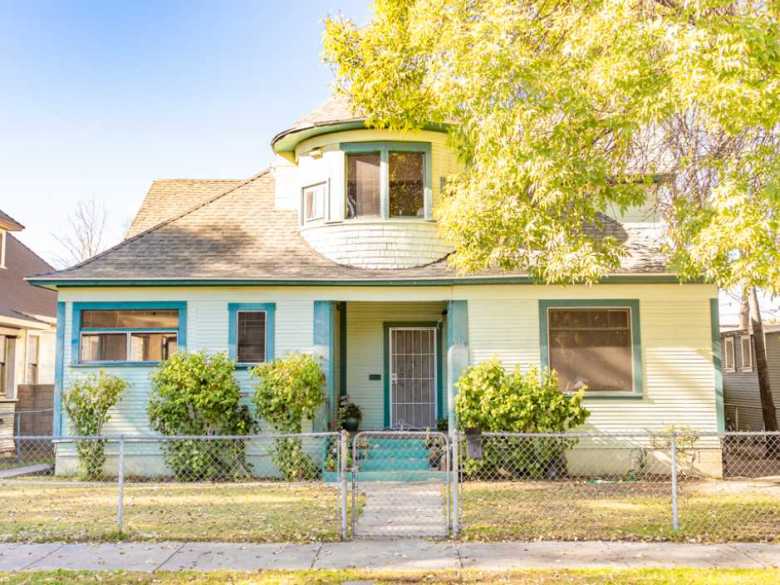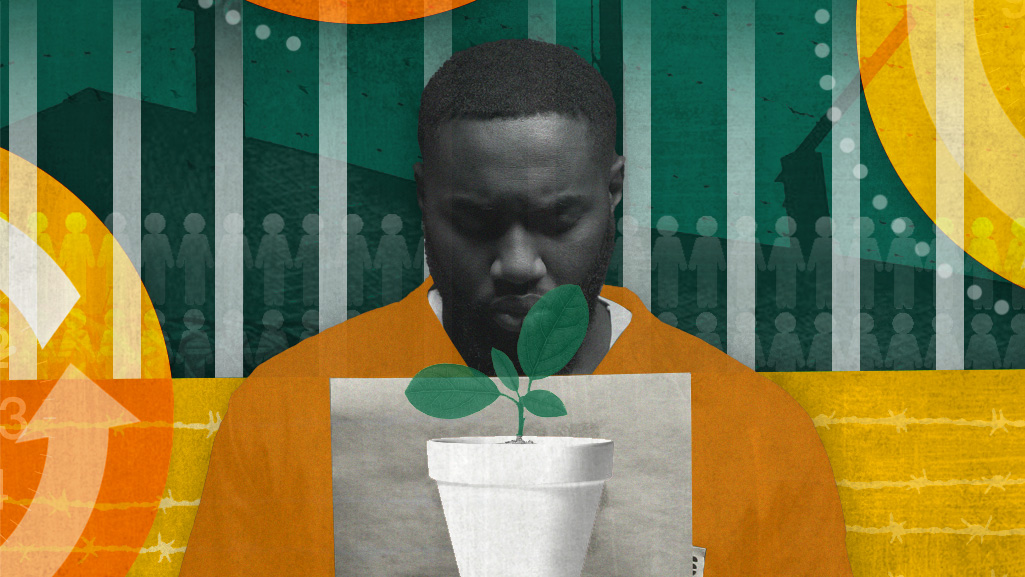Last Updated on March 8, 2023 by BVN
Every Exit is An Entrance
Starting Over
Part 1 of 4
(Image: Chuck Bibbs)
Breanna Reeves |
Reentering your community and rebuilding life after paying one’s debt to society is often riddled with unexpected obstacles and impeded by limited access to support. In this series, you will follow the reentry journey of Michael Jurado, a formerly incarcerated individual, as he navigates the challenges faced by himself and others as they struggle to cleanse themselves of the stigma of incarceration and discover the community organizations working valiantly to fill gaps in support left open by state and local governments.
Navigating life after prison is no easy task. In California, if a person is paroled — released early based on specific conditions — they may leave prison after years with just a few hundred dollars, their personal belongings and a mandate to meet with their parole officer ASAP. What’s more telling, though, is what they’re often leaving without.
The California Department of Corrections and Rehabilitation (CDCR) offers residential and outpatient programs, but all newly released persons aren’t guaranteed access to them since many programs require specific criteria while others are voluntary. Presently, CDCR offers 10 different types of programs as part of services for people who have recently left or are preparing to leave the prison system. They are categorized as being pre- or post-release rehabilitative programs.
According to a May report, there are 994 people under CDCR jurisdiction statewide enrolled in Pre-Release Community Programs, designated for individuals who are able to serve the last part of their sentence in community programs.
Of these 10 program types, just three are offered in the Inland Empire, with the exception of the Alternative Custody Program which allows an individual currently serving a sentence to apply to serve out their sentence in the community. The program types offered are: Female Offender Treatment and Employment Program (San Bernardino); Specialized Treatment for Optimized Programming (STOP) (San Bernardino); and Community-Based Coalition and Day Reporting Centers (San Bernardino and Riverside).
Different ways to measure
In 2015, a group of San Bernardino researchers examined barriers to reentry for formerly incarcerated individuals and found that parolees who lived in regions with more social services available were less likely to re-offend. Reverting back to criminal behavior, like being rearrested, is known as recidivism.
Recidivism is defined and measured differently across the U.S. In 2014, the California Board of State and Community Corrections defined recidivism as a conviction for a new felony or misdemeanor within three years of being released from custody.
California legislators passed a series of corrections’ reforms to reduce prison overcrowding and recidivism in 2011 and 2014. During the last decade, California’s changes to how it measures recidivism have made it difficult to compare its recidivism rates to other states. However, the Public Policy Institute of California noted that historically, the state has had one of the highest recidivism rates in the nation.
Researchers acknowledged that recidivism rates are related to multiple factors aside from behavior which contribute to the success of the reentry process.
Dr. Annika Anderson, a sociology professor at California State University, San Bernardino, explained that both individual-level factors and structural factors have the ability to impede successful reentry. Individual factors include a person’s sex, race and socioeconomic status while structural factors include communities, agencies and housing or employment opportunities.
The stigma of incarceration an impediment to employment
Project Rebound, which has chapters at campuses across the state, aims to reduce recidivism by supporting pathways to a college degree and a career.
“Our estimate of the unemployment rate establishes that formerly incarcerated people want to work, but face structural barriers to securing employment, particularly within the period immediately following release,” according to the Prison Policy Institute’s research. For those who are Black or Hispanic — especially women — their status as “formerly incarcerated” reduces their employment chances even more. The difficulty formerly imprisoned people have finding stable jobs and housing can be attributed to the stigma they experience related to a prison conviction.
Anderson emphasized that societal stigmatization of a criminal record means that people are labeled by their actions. It becomes their main identity instead of just part of it, she said. She recently reviewed a book, “Beyond Recidivism: New Approaches to Research on Prisoner Reentry and Reintegration” by Andrea Leverentz, Elsa Y. Chen, and Johnna Christian, that discussed what works and doesn’t work when it comes to reentry.
“The important takeaway is that reentry programs can minimize the risk of reoffending, but it’s through the identification of individuals’ issues and accompanying needs,” Anderson stressed.
“That’s the hardest part: helping them identify that they’re being impacted,” said Fidel Chagolla, an organizer for the Riverside chapter of All of Us or None, a social justice organization. Upon release, Chagolla said, people that have been incarcerated struggle to meet “their basic necessities.”
Formerly incarcerated himself, Chagolla had difficulty finding stable housing and a job upon reentry. With support from Underground Scholars at University of California, Riverside, Chagolla earned a sociology degree and decided to get involved in community organizations that support formerly incarcerated people.
In Chagolla’s role with All of Us or None, he partners with community organizations who can provide services and resources for formerly imprisoned persons, like Starting Over, Inc., a nonprofit that operates in Riverside and Los Angeles counties, and provides transitional housing, employment support and peer support.

Founded by Vonya Quarles in 2009, Starting Over uses an approach to reentry that both provides services and encourages clients to get involved. Quarles employs formerly incarcerated people who have experience with the prison and criminal justice systems and are equipped to support others with reentry.
Michael Jurado, who was released from prison after 31 years in 2017, met Quarles after he successfully completed a reentry program in San Diego. In an interview, Jurado lamented that the system as it exists now just doesn’t work.
“It’s like they’re setting you up for failure,” he says.
Community organizations like All of Us or None and Starting Over, fill the gap left by state programs’ lack of funding, resources and capacity. While nonprofit organizations are also under-funded and under-resourced, research shows that they have better outcomes. Community-based programs recognize the importance of a holistic approach to reentry — providing food, housing, rehabilitative services and counseling while simultaneously rebuilding community and family ties.
“Starting Over”
A successful reentry process is critical for the health of communities, especially Black and Brown communities disproportionately impacted by the criminal justice system and mass incarceration. Reentry services are pivotal in helping formerly incarcerated individuals get their lives back on track. And, setting these people up for success means safer, more stable communities for them and their families.
We’ll take a multi-faceted look at the people and processes of reentry in California: Michael Jurado dedicates his time to supporting other formerly incarcerated people and others who’ve been impacted by the criminal justice system; Community-based organizations are utilizing a new “participatory defense model” to support and educate people facing criminal charges and their families; and SB 354, a new law which helps keep more kids out of foster care by making it easier for formerly incarcerated individuals (who weren’t convicted of crimes against children) to take custody of a family member’s minor child or a child under 18 in their care.
A previous version of this article reported that Fidel Chagolla received support from Project Rebound at University of California, Riverside. Chagolla received support from Underground Scholars at University of California, Riverside.




